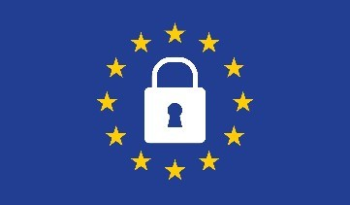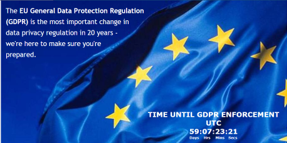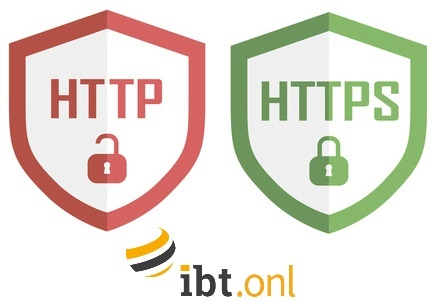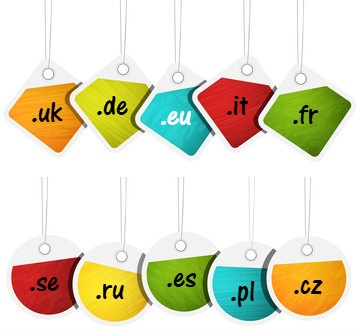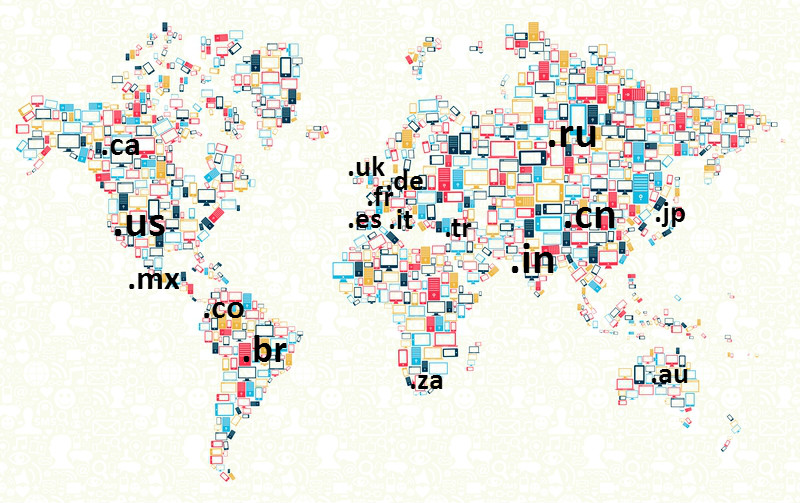At IBT Online we deliver innovative and high-quality websites and online marketing for international businesses. With offices in Europe and the US, helping companies navigate the European General Data Protection Regulation (GDPR) is fundamental to our business. IBT Online is here to help your company get ahead of the game in digital trustworthiness.
The objective behind GDPR is to change mindsets. Facebook may be at the vanguard, but most companies today collect, store and use personal data online. The premise behind GDPR is that personal data belongs to individuals, who have rights over their online data. GDPR is therefore a process rather than a one-off security fix, and impacts internal corporate policies, as well as your website and marketing. Read MoreInternational Business and Technology Blog
Tags: All posts, Digital Compliance
Web Accessibility - universal access to your website
Posted by John Worthington on Wed, Apr 01, 2020
The ability to access the internet is increasingly seen as a fundamental human right. Tim Berners-Less, one of the inventors of the WorldWideWeb and a director the World Wide Web Consortium (W3C) notes that “The power of the Web is its universality. Access by everyone regardless of disability is an essential aspect”. Accessibility for the disabled, is a growing concern. While the United Nations set out guidelines as far back as 2006, countries have been slow to adopt them. But the tide now looks to be turning.
The European Union (EU) implemented the accessibility best practices in 2010. In 2017, over 400 U.S. companies were served with lawsuits under the Americans with Disabilities Act (ADA) because their websites were not deemed accessible to the disabled. Websites are increasingly recognized as public places, and therefore need to be more mindful of public accessibility. Today, more than 4 billion people use the web for: “education, employment, government, commerce, health care, recreation, access to information and more” (Source: United Nations). To be denied access to the web is an impediment to normal life and life’s opportunities in our 21st century world. Companies need to take note.
Read MoreThe world wide web was invented 30 years ago and in just one generation has spread to every corner of the Earth and even beyond. The United Nations is debating including access to the web as a fundamental human right. But the risks of the web’s ubiquity are also increasingly clear. The General Data Protection Regulation (GDPR) is the greatest challenge so far for companies as they scramble to tame their wild west websites. At the core of GDPR is the recognition that online personal data has a value. Who owns it and how should it be treated?
Read MoreTags: All posts, Digital Compliance
Online Global Website Hosting: speed, security, scalability, support
Posted by John Worthington on Fri, Jun 01, 2018
Hosting websites is a massive, technological, fast evolving and growing global business. Website hosting is all about managing and optimizing the rapid rise in the number of websites: there are over 1.8 billion websites today compared to just 3,000 in 1994. These zillions of webpages compete for prized online real estate, to attract the more than 6 billion targeted internet users worldwide. To succeed, companies, organizations and individuals demand that the website hosting service providers deliver for their websites the four key S’s of website hosting success: speed, security, scalability and support.
The hosting industry is yet another deeply technological subject for those concerned to master and manage. At IBT Online we want the best for our clients online business and this includes getting the best hosting experience in global markets. Service delivery from hosting providers ranges from good (5) to bad (1) (see below for criteria). We see averages of 4 in home markets, but 2 when it comes to global website hosting! The IBT Online Global program best practice for website hosting, is to get our clients a top 5 score in all their markets.
Read MoreI have always loved the letter S: it is the best letter in the alphabet. It is always, all about that "S". In fact, S is such an important letter that we added it to our web browser, so we are HTTPS, to make it safer for you! And everyone in the online community, should be doing the same. The online world and internet of things are fundamentally insecure, with cybercrime rising exponentially and now reckoned to be the second most reported economic crime, costing billions.
Could cybercrime happen to you? Yes. Worried? You should be. If not secured, “when you load a website someone else on the network can look at or modify the site before it gets to you”. And that happens all the time, with most users blissfully unaware. The not-so-elegantly named solution is Secure Sockets Layer (SSL), denoted by an S in your web browser. Just glance up now and check it out: does it read HTTP or HTTPS? You will see that IBT Online is HTTPS = secure. This is the standard security technology for establishing an encrypted link between a web server and a browser. Hence the online mantra is HTTPS good, HTTP bad! Add an S and you’re good. An HTTPS website should make you smile as it is has three essential qualities: identity, confidentiality and integrity. So you know where you stand; safe and secure.
Read MoreThis blog’s goal is to give you an overview of European domain registration requirements for selected countries.
Can a non-EU company register European domains?
Even though the EU coordinates and standardizes many processes across the member states, requirements for domain registration are still managed by each country independently and often differ considerably. Some countries will allow you to register domains without further requirements, while others will require you to provide various local details, e.g. address or corporate tax number, in which case you’ll need the help of a local partner. Some domain registrars provide local contact details for selected countries as part of their service too.
Read MoreThe importance of owning a domain for your export markets is twofold: Firstly, to protect and own your brand, secondly to improve your local search engine optimization. In this blog, we will take a closer look at both of these aspects, give you recommendations on the increasingly popular geographical domains, and provide you with basic information on what you need to register your international domains.
Read MorePrivacy Shield is the reassuringly protective and secure sounding title given to the new US-EU deal (February 2016) on transatlantic data flows. Essentially, the concern is one way, that of European Union (EU) data flows to the United States (US). The previous agreement, seductively entitled Safe Harbor, proved to be anything but safe for EU data and was finally struck down by the European Court of Justice (ECJ) in October 2015. Safe Harbour has been described as “a way for US businesses to transfer EU citizens’ personal data to the US even though American data protection laws are not up to the European standard”. In retrospect, it seems amazing it lasted so long.
Read MoreTags: All posts, Digital Compliance

